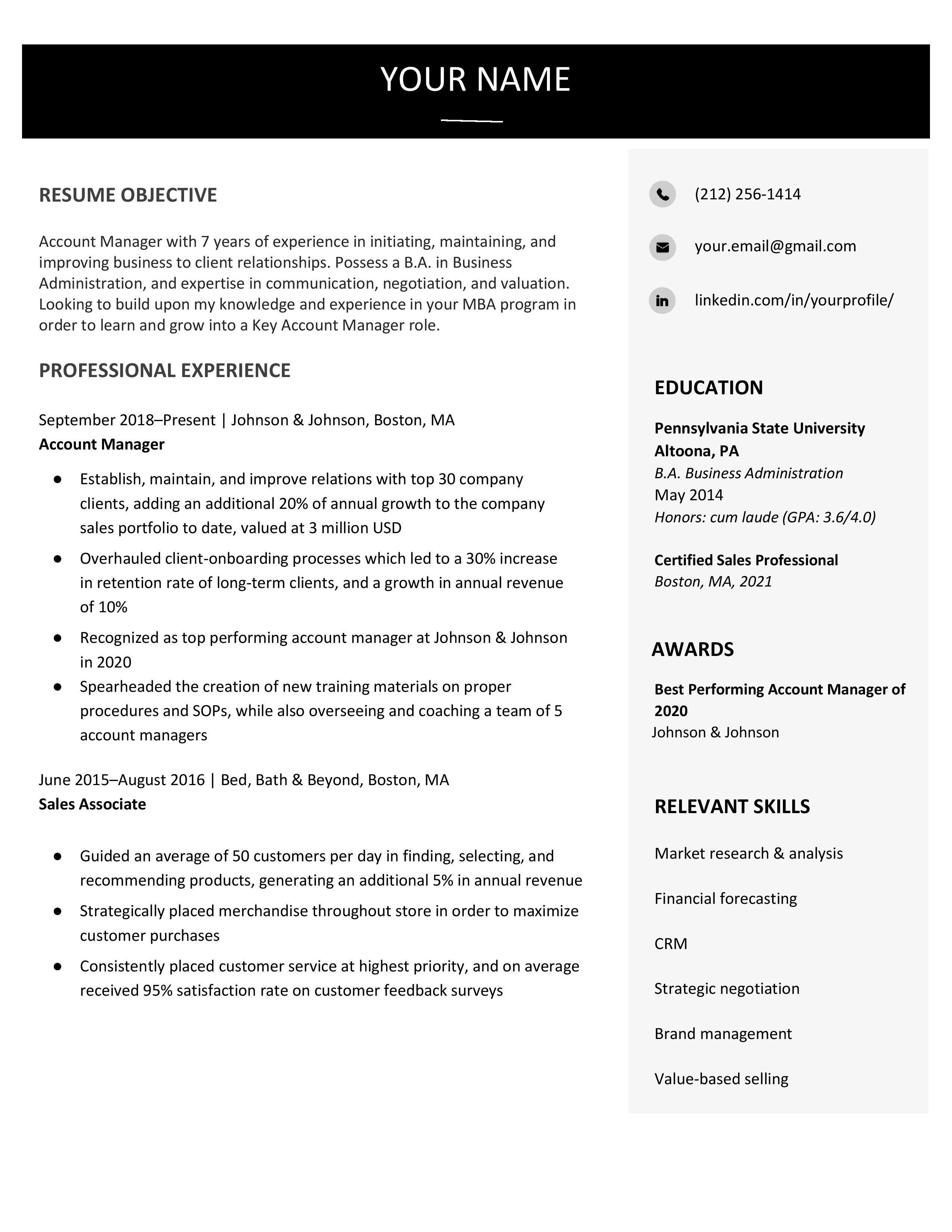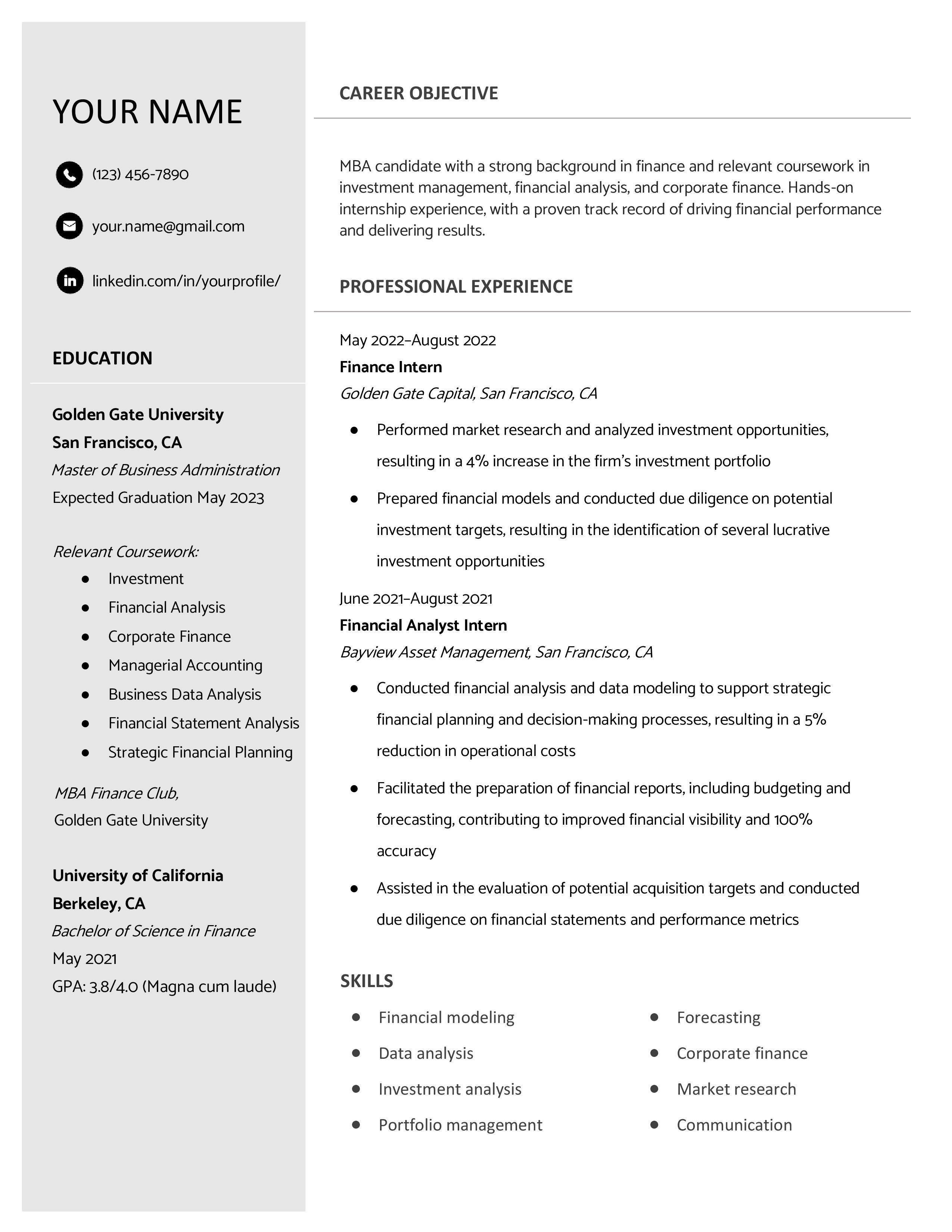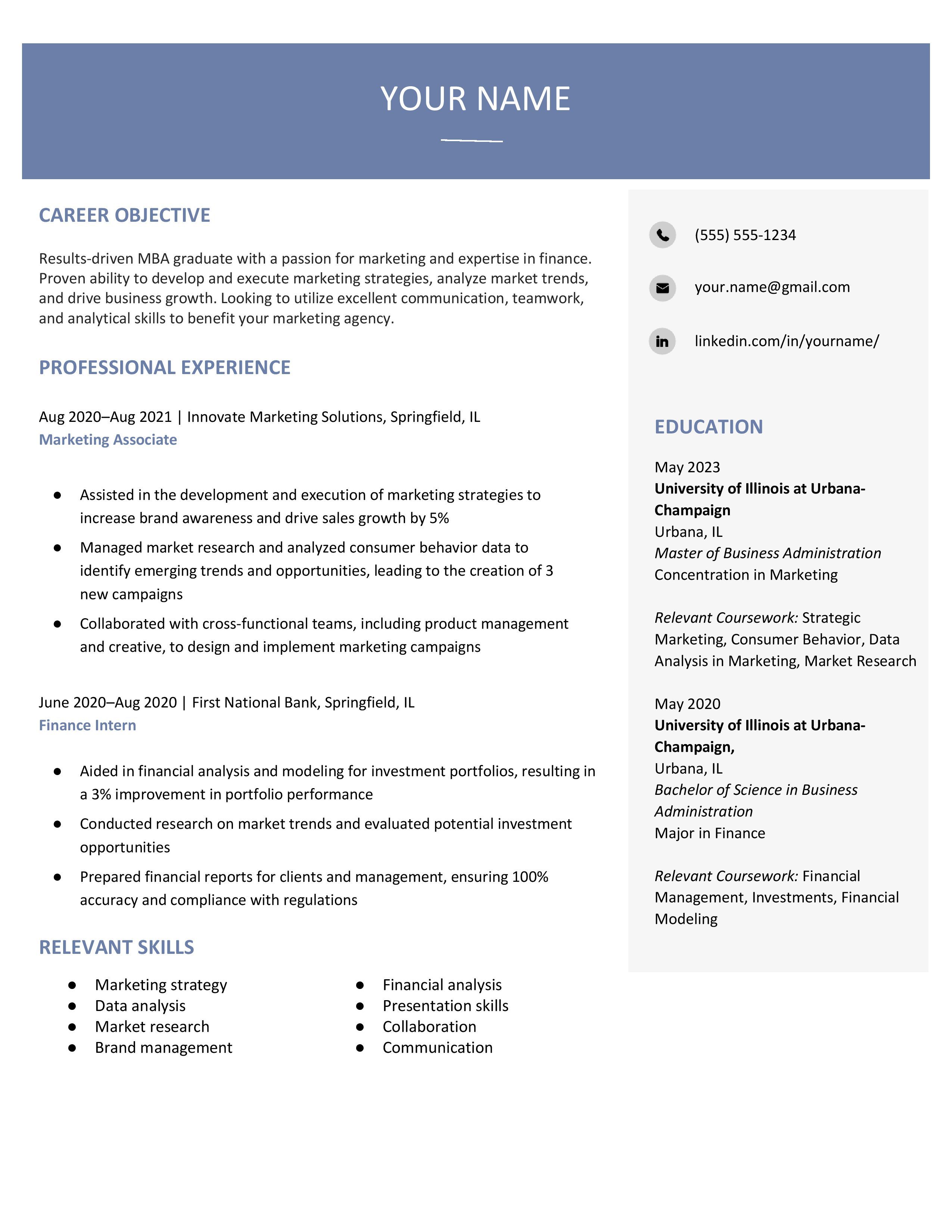How to Write the Best MBA Resume
Published on October 7th, 2024
One of the many doors an MBA degree opens to fruitful opportunities in regards to leadership, networking, and other serious advancements in career is open to many fruitful opportunities. But if you're going to fully benefit from the esteemed schooling, there must be a clear, compelling, and concise portrayal of your experience and skills through your resume.
Whether you happen to be a fresher graduate, or a veteran professional looking to shift gears, this blog post will walk you through the essentials of preparing a sterling MBA resume.
Significance of MBA
A Master of Business Administration is one of the most sought degrees amongst students because it develops the finest ability to gain capabilities in a variety of business arenas.
It generally handles all the important topics in finance, marketing, operations, and management, which makes the graduate all-rounders. Such knowledge prepares them to face complex business challenges and helps in make the proper decisions.
The MBA programs would primarily train students on leadership skills in order to be able to lead teams, manage projects, and drive organizational change. Such training on soft skills is necessary for career enhancement.
Check out the free resume templates for MBA resume -
Template 1
Template 2
Template 3
Why Your MBA Resume Matters
It's often the first impression of you for any employer or admissions committee to know. It is a well-structured digestible format, through which you can prove your strong leadership skills and problem-solving ability and achievements. The strong MBA resume must highlight your educational and professional background as well as your soft skills and ability to deliver results.
Here are the essential elements that guide you on how to prepare a winning MBA resume.
1. Kick-start with a Strong Professional Summary
Your professional summary is your elevator pitch. This section, typically 3-5 lines long, should distill your background, skills, and what you can bring to an organization or MBA program you're applying for.
Best Practices
- Customize for the job or program: Tailor your summary to the job description or to the specific requirements of the MBA program.
- Highlight your strengths: Leadership, project management, analytical thinking, and so on.
- Career goals: Briefly describe how the MBA will enable you to fulfil your future aspirations.
Example:
A results-driven marketer who has led cross-functional teams to revenue growth through data-driven strategies for over 5 years. Good experience in scaling businesses and improving customer engagement. I look forward to applying my business acumen and seeking an MBA that catapults me into senior management.
2. Highlight Your Professional Experience with Measurable Accomplishments
It provides a strong influence for both MBA admissions and your employers. Listing a job description is not enough there is a need to outline the impact you made. Aim at quantifiable achievements, where numbers can illustrate your contribution to the growth, or efficiency of profitability in the company.
Practical Applications:
Use action verbs like "led," "developed," "executed," or "innovated."
Quantify the results attained where feasible (for example, "Increased sales by 20 per cent," or "Maintained a budget of $500,000").
Show leadership and impact programs place a high value on those applicants who have demonstrated and proven leadership and management talents.
Marketing Manager | XYZ Corporation | 2019–Present
Managed a 10-person team for a successful product line launch of $2 million that increased market share by 30 per cent in the first year.
Developed and implemented a data-driven digital strategy that included driving a 25% increase in customer engagement and a 15% reduction in acquisition costs.
In the end, merged cross-functional collaboration with sales, R&D, and design to create streamlined product launch processes that will reduce the time it takes to get these to market by 20%.
3. Share Your Educational Background
Education is definitely not an afterthought for MBA applicants. It's a selling point. Under "education", include all of your highest educational degrees and relevant courses or certifications you completed. If you're an MBA applicant with distinguished academic achievements like a high GPA or honours, let it shine.
Best Practices:
Curricular Interested Projects: If possible, state-specific projects that align with the job or program you are targeting.
Highlight academic honours or scholarships to show a strong academic track record.
Mention leadership roles in academic clubs or organizations
For example:
Bachelor of Business Administration (BBA)
ABC University, 2016 – 2020
Graduated with Honors, GPA: 3.8/4.0
Curricular interested projects: Business Strategy, Financial Analysis, Organizational Behavior, and Data Analytics
President, Business Club: Organized industry panels, networking events, and skill development workshops.
4. Relevant Skills to Your Industry or MBA Program
Your skills section on your MBA resume draws the attention of the hiring manager to the tools and competencies you bring to the table. Draw attention to skills being critical in business, management, or any area of interest to you.
Best Practices:
- Technical and business skills, such as proficiency in Excel, SQL, project management, and financial analysis.
- Soft skills, like leadership, communication skills, and problem-solving skills, are often the cornerstone of MBA programs and work in senior management.
- Show, don't tell: skills through certificates or the practical outcomes during your working years
For example:
Skills:
- Data Analysis (Excel, SQL, Power BI)
- Financial Modeling & Budgeting
- Strategic Planning & Business Development
- Digital Marketing & SEO
5. Certifications, Awards, and Extracurricular Activities
If you've completed relevant certifications or training, share them with the hiring team by listing them below. Certificates in project management (e.g., PMP), coursework in data analysis, or that coveted digital marketing certification can serve as a real plus. Employers and MBA programs welcome well-rounded, active people, so be sure to mention any leadership positions or significant achievements from your extracurricular or volunteer activities.
Best Practices
Show industry-recognized certifications such as CFA, PMP, or Six Sigma.
Show leadership roles in other extracurriculars such as student organisations, community groups, etc.
6. Optimize Your Resume to Work with ATS
Most companies and most MBA programs screen resumes through ATS. To get your resume past these systems, it needs to include the keywords for the job or program you're applying for. Study the job listing or the program description and include those terms organically in your resume.
Best Practices:
- Use traditional headings such as "Professional Experience," "Education," and "Skills."
- Avoid fancy designs or fonts that many of these ATS systems often have trouble reading.
- Use the keyword from the job or MBA program description on your resume. (example: "strategic management, financial forecasting").
7. Formatting Tips: Keep It Clean and Professional
Never does it matter how impressive your experience and skills are, poor formatting can put a downer on that impression. Your resume should be easy to read and professional-looking.
Best Practice
- Use one or two pages at most. The text must be concise since you will only include the most relevant accomplishments.
- Use a clear, businesslike font such as Arial or Times New Roman.
- Use bullet points so that clarity is apparent and the resume is easy to read.
- Consistent use of varying font sizes, margins, and headings.
Conclusion
This is the moment when, with the potential as a future business leader, you can demonstrate it. Use these best practices to develop a clear and result-driven resume that signifies experience, skills, and achievements in business. And that is exactly what every resume should be submitted based on: the type of job or MBA program intended for to be unmistakable as an ideal candidate.
Using action verbs, quantifying achievements, and highlighting leadership skills will help make an MBA resume as effective and impactful as possible. Clean professional design and solid content will help your resume leave a lasting impression in the minds of admissions committees or hiring managers.
Authors

Yash Chaudhari
With a strong background as an SEO and Content Specialist, Yash excels in driving organic traffic, improving search engine rankings, and creating SEO-optimized content. He has a proven track record of implementing strategies that increase website traffic and conversions. Additionally, Yash is an automotive enthusiast and has a keen interest in astronomy.
Hire the best without stress
Ask us how
Never Miss The Updates
We cover all recruitment, talent analytics, L&D, DEI, pre-employment, candidate screening, and hiring tools. Join our force & subscribe now!
Stay On Top Of Everything In HR




